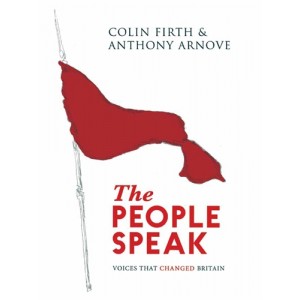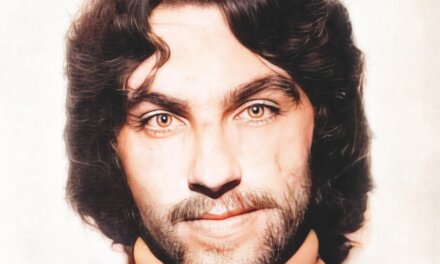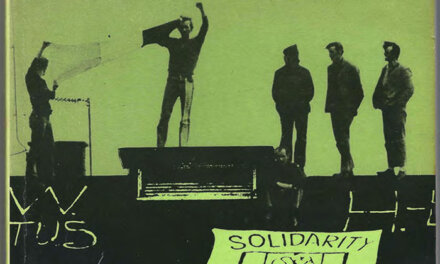Extracts from Bobby Sands’ hunger strike diary appear in a new book edited by, among others, the Academy-Award winning actor, Colin Firth. ‘The People Speak’ is also part of a multimedia project which includes a stage show which will bring to life the voices of campaigners, dissidents and visionaries.
The idea began life in America, where performers such as Matt Damon and Bob Dylan supported the scheme. Compiled by Firth, author and editor Anthony Arnove and historian David Horspool, the collection of speeches, songs and letters include quotes from Emmeline Pankhurst and Oscar Wilde.
Firth said: “The idea was simple. Take the most impassioned speeches about the fight for what is right and bring them to life for a new generation. The reason why it’s so powerful is because it’s about everything that matters to us: love and life, sex and death, justice and freedom.”
Guest writer, veteran republican Gerry O’Hare (a former political prisoner and editor of An Phoblacht) reviews ‘The People Speak – Voices That Changed Britain’ for the Bobby Sands Trust website.
Considering that most of us grew up in or around some form of Thatcherism, with all its works and pomps, the title of this book caught my attention. Whose ‘Voices’, I wondered? The publisher’s guff on the cover also caught my imagination. It wasn’t what I expected.
“I hope that these voices – whether they be socialists, anarchists, agitators, Chartists, suffragists, Lollards or Levellers – serve as a reminder that much of what we feel entitled to today, much of what we accept as civilised or decent, began as treason.
“Was fought for by men and women who weren’t endowed with any political power, who were hanged for it, transported, tortured or imprisoned until eventually their ideas were adapted to, adopted and handed down to us as basic rights.
“These freedoms are now in our care. And unless we act on them and continue to fight for them, they will be lost more easily than they were won”.
Who penned that, I wondered? Somebody from the last century? Scholar, politician, leader, visionary?
Not a bit of it. Step forward Colin Firth, star of the ‘Bridget Jones’ movies, ‘The English Patient’, who played the painter Vermeer in ‘Girl With A Pearl Earring’, King George VI in ‘The King’s Speech’ and, of course, was an unforgettable Darcy (over whom so many women swooned and male teeth gnashed) in ‘Pride and Prejudice’!
Why was I surprised? Well, I was. Simple as that. Looks, a brain – and also, it seems, principles of the highest order. Has the man no shame? But as a recently dear departed fellow journalist used to say, “Moving on”.
This anthology of rebel writings is co-edited with Anthony Arnove (author of ‘Iraq: The Logic of Withdrawal’ and ‘The Essential Chomsky’) and with an input from David Horspool, historian, journalist (and author of ‘Why Alfred Burned the Cakes’).
It tells the story of Britain through the voice of visionaries, dissenters – including Bobby Sands – revolutionaries and everyday folk who took on the establishment by standing up for their beliefs. Here, there are stories, letters, speeches, poems and songs from Wolfe Tone to Daniel Defoe, from Thomas Paine to Oscar Wilde, from the Peasants’ Revolt to the suffragists and the anti-war demonstrators of today.
Spanning over almost a thousand years and 150 individual voices, these are, Firth claims, “the most powerful words in British history”. It is a salutary reminder that our nearest neighbour has its own radical tradition – albeit one that has been less exercised than it might be on this side of the Irish Sea.
Where does one begin? Naturally, I went straight to see what Bobby Sands said to impress Firth enough to be included.
It is from his prison diary and the date is March 1st.
Bobby says that he has broken his mother’s heart over his hunger strike. He states that he is a political prisoner. “I am a political prisoner because I am a casualty of a perennial war that is being fought between the oppressed Irish people and an alien, oppressive, unwanted regime that refuses to withdraw from our land”.
He documents a day in the life of his agonising hunger strike, his treatment at the hands of ‘the slobbers’ – prison screws. He ends his short narrative by saying that, on receiving a letter from his mother, his mind is at peace for his struggle.
“Every time I feel down, I think of Armagh (jail) and James Connolly. They can never take those thoughts away from me”.
There are many other texts central to Irish history: Emmet’s speech from the dock, Padraig Pearse at the grave of O’Donovan Rossa. Firth and his fellow anthologists give more than a nod in our direction. It is heartening to see.
But Firth tells us that, even with 450 pages, he could not even begin to scratch the surface of his country’s rebel history: “Our exercise is a capricious one,” he says, “vast quantities of rich and important material have been left out”.
The anthology begins at the time of the Norman Conquest, against which the native English raged, and races through history until the present.
Just a taster: he covers among other subjects: the Magna Carta; Britain’s enemies (of which, naturally enough, there are many!); commoners and kings; various peasants’ revolts, freedom of religion and worship.
There are many details of the Empire’s struggles with countries who gained their Independence, and the heavy price always to be paid.
Workers strikes are there in abundance, including the Matchgirls’ Strike of 1888 and the Dock Strike of 1911. There is an entire section dedicated to issues of gender and sexual equality.
A good judgment on my own reaction, and the books status generally, is that I spent a whole day reading it from cover to cover and struggled to decide where to begin this review.
So, I take the easy way out and encourage you to buy and, along with Firth, hope it will stimulate you into comment.
One personal observation: he mentions the land of my father, the Isle of Man. ‘Fo Halloo’ was an underground group that called upon the Manx people to fight back against the speculators, who had been encouraged by the Manx Government at the Tynwald, to invest and buy up homes and land, at cut down prices, to the detriment of the locals:
“Fo Halloo calls upon the Manx people to fight back.
The Manx Cross is burning. Get up off your knees.”
Now where did we hear that before?
‘The People Speak – Voices That Changed Britain’ by Colin Firth and Anthony Arnove
Hardback, £17.99. Published by Canongate




